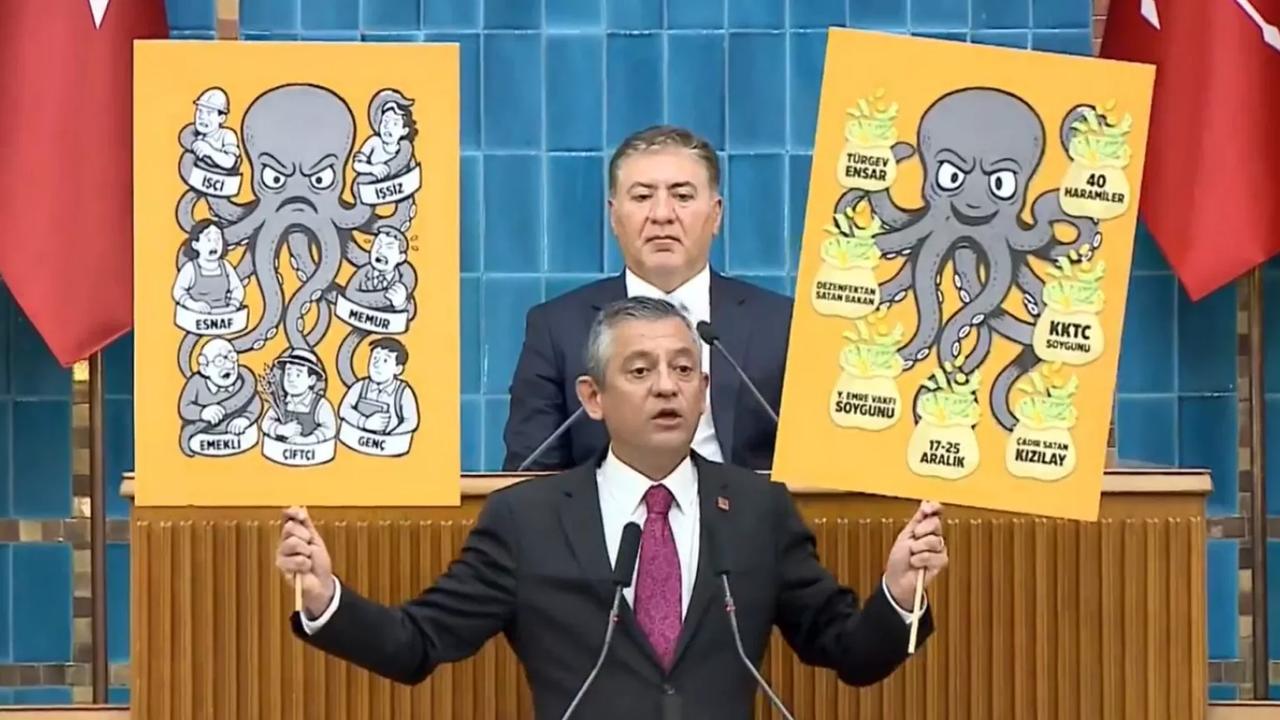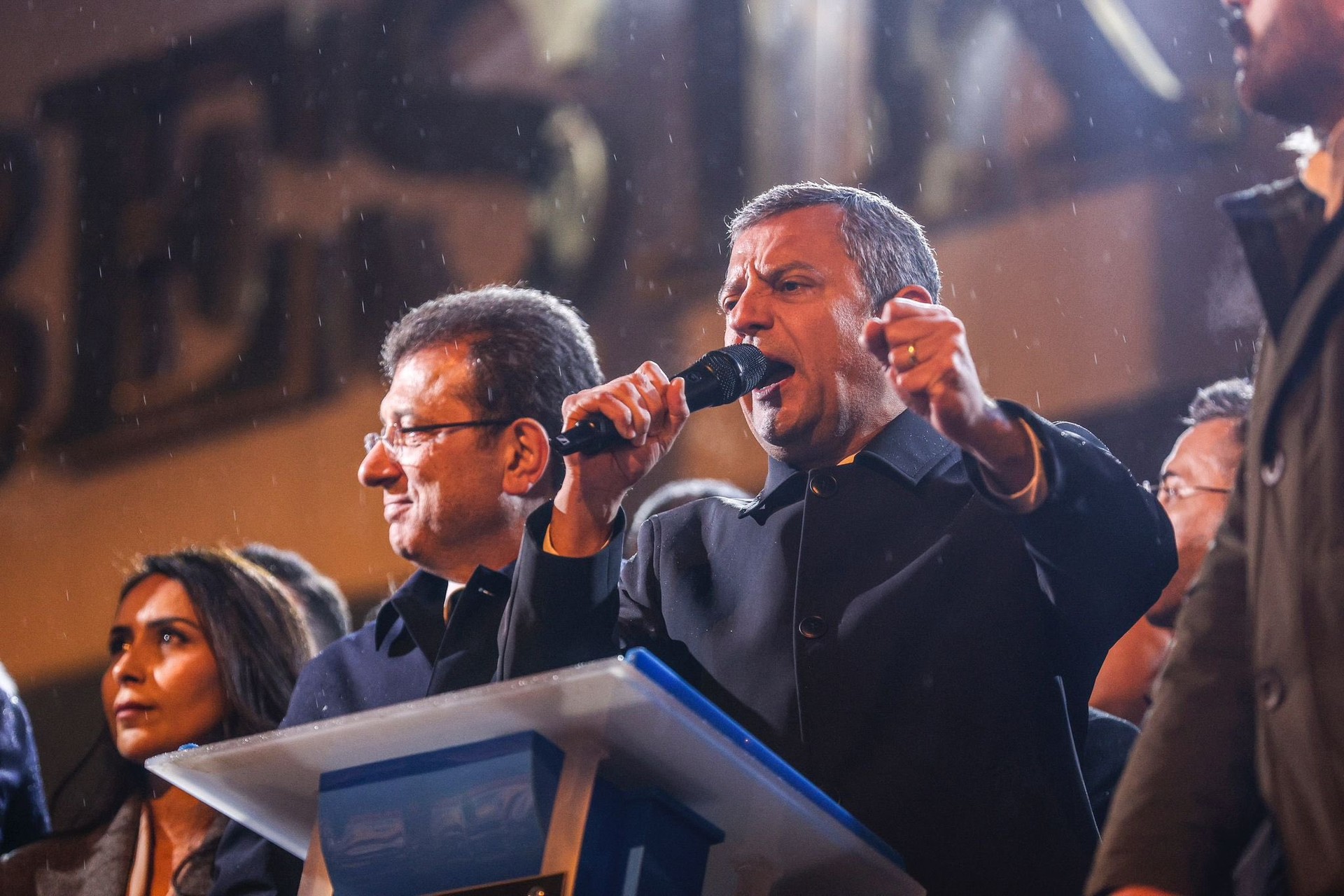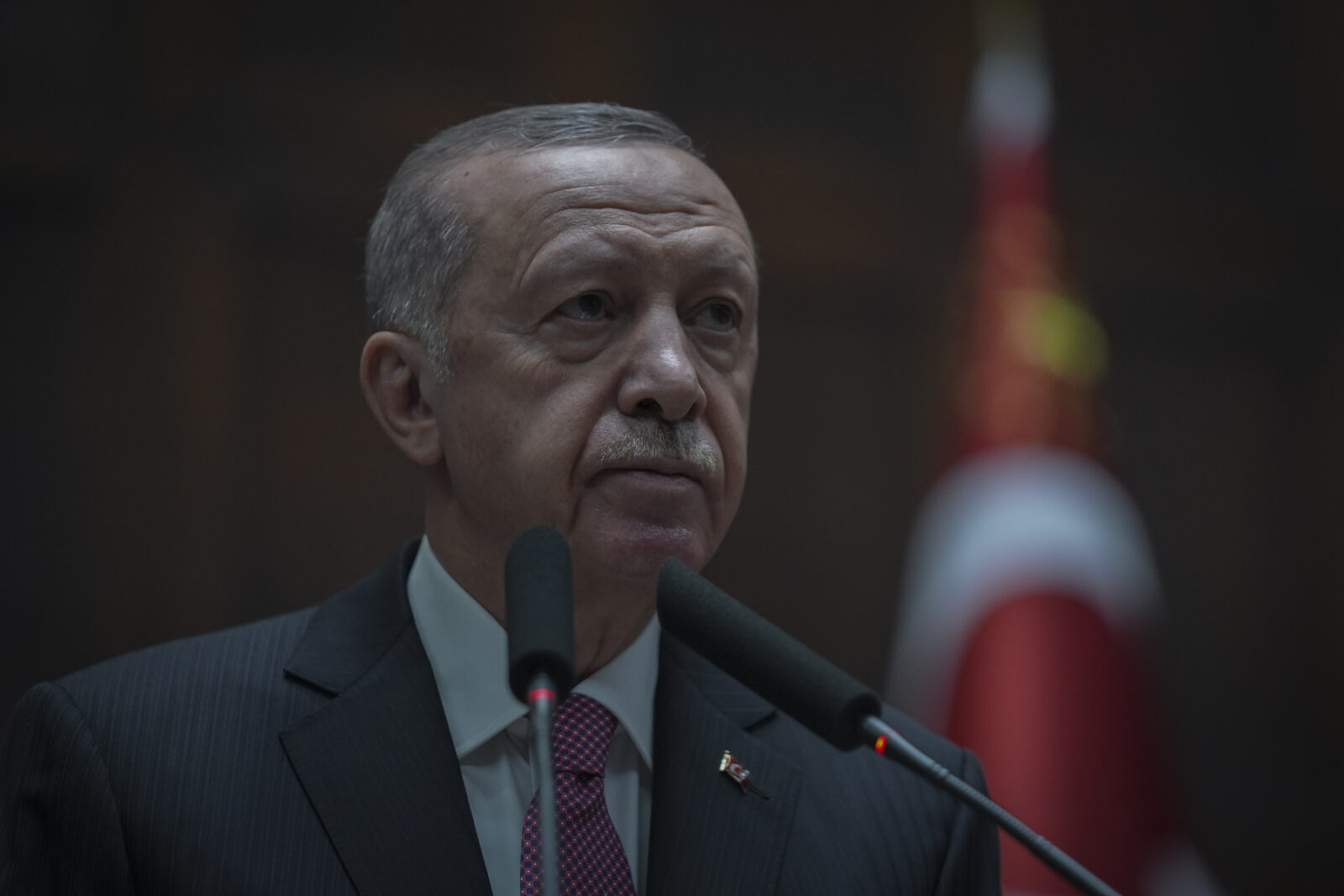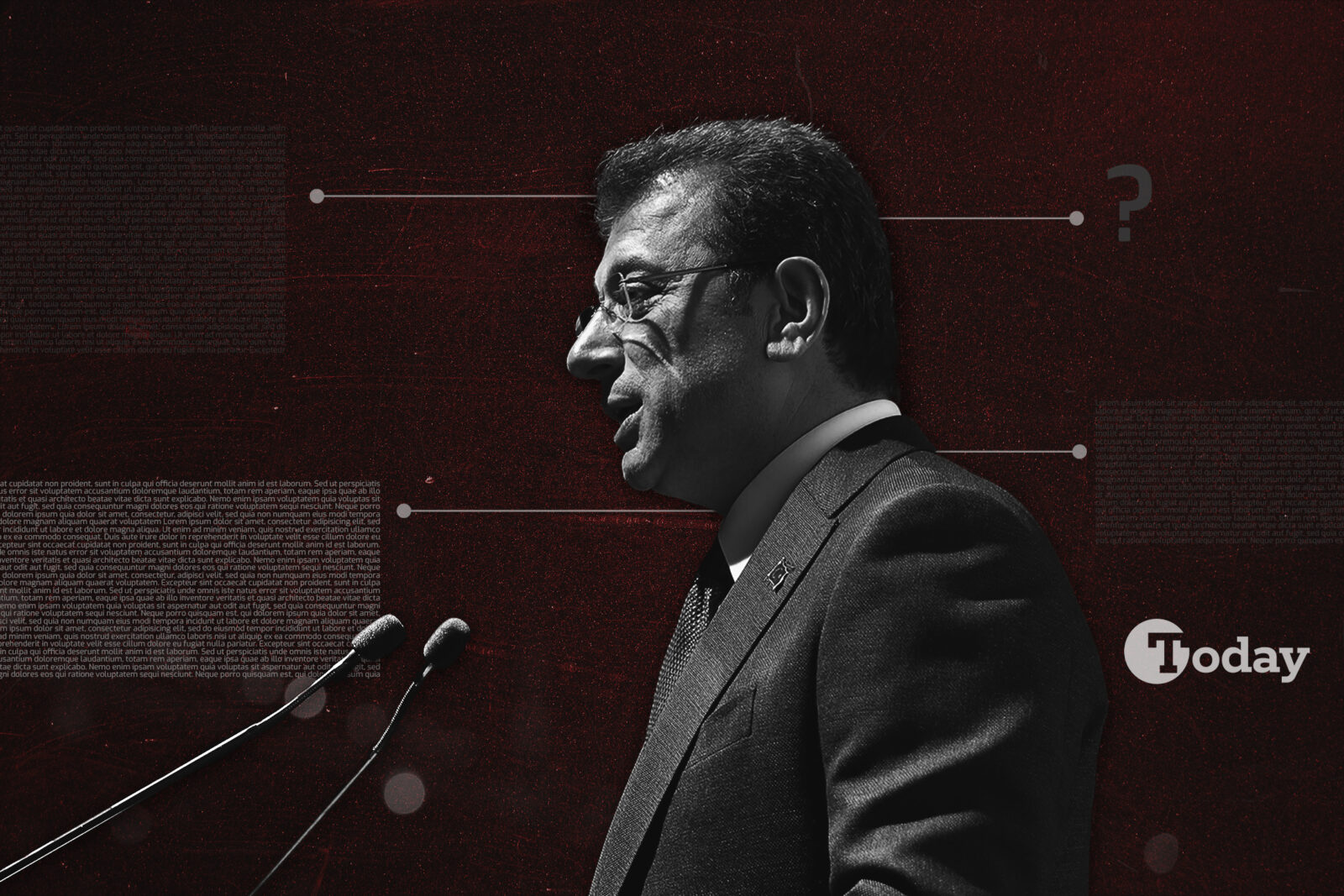
A political war of words has erupted in Türkiye after President Recep Tayyip Erdogan likened alleged wrongdoing in the Istanbul Metropolitan Municipality to the tentacles of an “octopus” reaching across the country and beyond.
In a speech earlier this month, Erdogan claimed the unfolding investigation into the municipality revealed “an octopus whose arms stretch from Istanbul to the rest of Türkiye and abroad.” He framed the operation as a matter of “national security”, alleging the presence of a vast criminal network entangled with politics, bureaucracy, business, media, and even religious sects.
Many commentators have asserted that Erdogan's remarks refer to a much larger corruption investigation that may soon begin in connection with the Imamoglu case.
But on Tuesday, main opposition leader Ozgur Ozel flipped the metaphor back at the government, accusing Erdogan of presiding over the real octopus suffocating Turkish citizens and institutions.

Speaking during a fiery parliamentary group address, the Republican People’s Party (CHP) leader displayed two posters of octopuses. One illustration depicted tentacles choking groups, including workers, retirees, and civil servants—the other depicted arms labeled with scandals: from alleged corruption in state-linked charities to major bribery cases.
“Mr. Erdogan keeps talking about octopuses,” Ozel said. “Let’s assume, for a moment, that what he says is true. Even then, it shows that the judiciary is compromised, because he’s receiving information from an ongoing secret investigation.”
He then added, “But tomorrow, I’ll show the whole country what the real octopus looks like.”
Ozel’s accusations cited alleged cronyism involving dozens of companies known as the “gang of five,” old corruption cases from the Dec. 17-25, 2013, probes, and what he called “the Northern Cyprus heist”—referencing claims of nepotism and misconduct involving Turkish diplomats and state-linked officials on the island.
He also referenced earlier corruption claims involving high-profile cabinet members and controversial foundations close to the ruling party.
Erdogan had introduced the octopus metaphor in connection with a fresh investigation targeting Istanbul’s opposition-led municipality, implying the case was unprecedented in scale and seriousness. He described it as an “organized crime structure that extends beyond municipal corruption into a threat to national security.” At the center of these debates are the foreign loans that the metropolitan municipality has taken.
“This dark network has morphed into an octopus with arms reaching municipalities, institutions, even abroad,” Erdogan said last week. “It spans political parties, the business world, media, sects, and even intelligence networks.”
Observers say the president’s mention of “sects” could be a thinly veiled reference to the religious sect “Suleymancilar”—signaling that future legal action may target them as well, as media figures such as Rusen Cakir believe.

At the center of this rhetorical showdown is former Istanbul Mayor Ekrem Imamoglu, a rising star in Turkish politics and a frequent Erdogan critic. Though not named directly, Imamoglu appears to be the implicit target of the government's mounting pressure.
A newly prepared indictment reportedly ties elements of Erdogan’s octopus metaphor to Imamoglu’s administration, marking what some believe could be the start of a broader crackdown.
Analysts say Erdogan may be leveraging the scandal to corner the opposition, pressuring Ozel to abandon his defense of Imamoglu—and perhaps to cooperate on a controversial new constitution proposal.
At his party's previous group meeting, Erdogan called CHP leader Ozel to “get rid of the yoke of this criminal organization.”
Considering that the calls for a new constitution are constantly brought up by the president and that the main opposition party’s consent is needed for it, there are comments that this could be seen as a last offer before the CHP is pushed further into the margins of the Turkish political arena.
Yet CHP leader Ozgur Ozel is working hard to challenge that narrative, ramping up his rhetoric instead of backing down.

The saga that began with the “radish in the saddlebag” now appears to be evolving into a new chapter—the octopus and its far-reaching arms.
Given that Erdogan's radish metaphor was followed by real policy actions, many are now wondering what the octopus analogy will foreshadow for Turkish democracy.
Some opposition voices argue that the central bank’s recent moves — particularly its foreign exchange purchases over the past month—may be part of this metaphorical storyline. They claim the so-called “radish” metaphor was echoed in monetary policy, and now suspect these financial maneuvers could be tied to the "head" of the octopus.